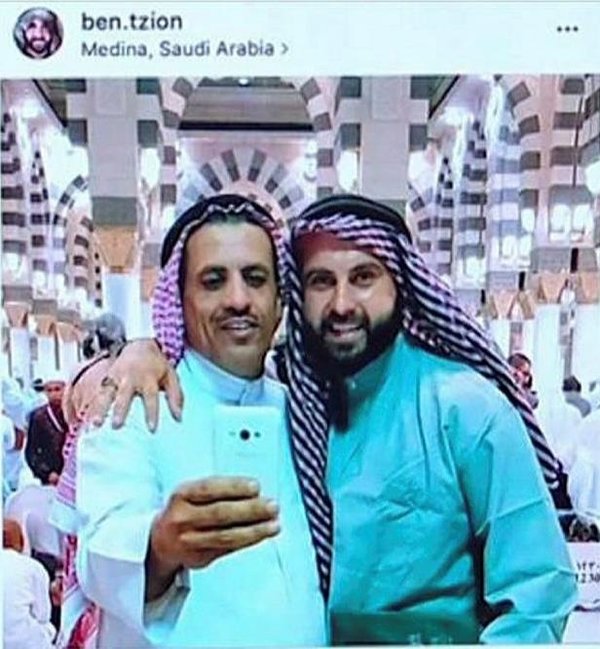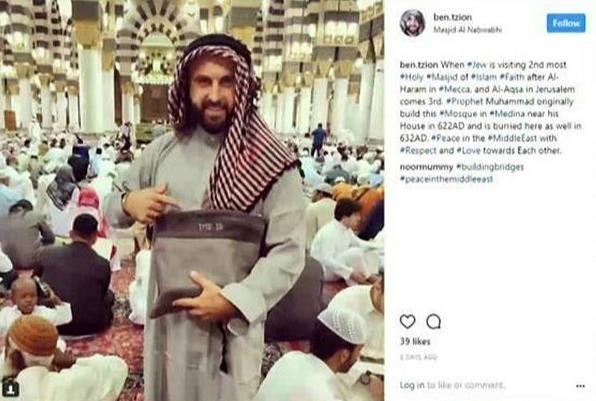Photos taken by an Israeli blogger near the Mosque of the Prophet in the Saudi city of Medina -- Islam's second holiest site -- have drawn condemnation from Muslims on social media.
On Monday, Ben Tzion, a blogger for the Times of Israel, shared photos of himself at the iconic mosque on popular social-networking website Instagram.
The photos were accompanied by a caption reading, "A Jew visiting the second holiest site in Islam after Mecca".

Reacting to the photos online, many Muslims criticized the Saudi authorities for what they described as the latter's "failure" to protect Muslim holy sites.
Some went so far as to assert that the Saudi authorities were "unworthy" of bearing the traditional title "Custodian of the two holy mosques" -- a reference to Mecca and Medina.

Under Saudi law, non-Muslims are forbidden from entering Medina's Nabawi Square, in which the mosque is located.
-'COMMON CONCERNS'
Notably, on the same day the photos were posted online, Israeli Energy Minister Yuval Steinit said Israel and Saudi Arabia shared "common concerns" regarding Iran, saying the two countries maintained covert ties despite the lack of official diplomatic relations.
On Tuesday, Gadi Eisenkot, Israel's military chief-of-staff, gave an interview to Saudi daily Elaph in which he said Israel was ready to share intelligence with Saudi Arabia -- and other "moderate" Arab states -- with a view to confronting an ascendant Iran.
"Under the leadership of U.S. President Donald Trump, there is an opportunity to establish a new international alliance in the region," Eisenknot stated, calling for the formulation of a "detailed plan" for containing the Shia Islamic republic.
The first-ever Israeli chief-of-staff to be interviewed by a Saudi newspaper, Eisenknot said Iran's waxing influence in the region was a "source of concern" for both Riyadh and the self-proclaimed Jewish state.